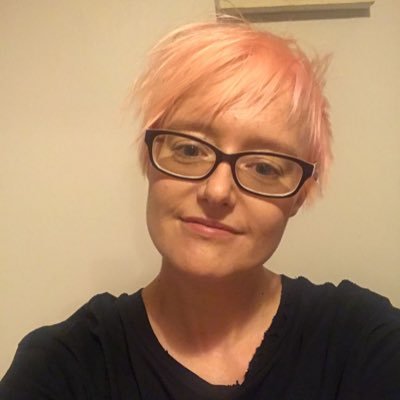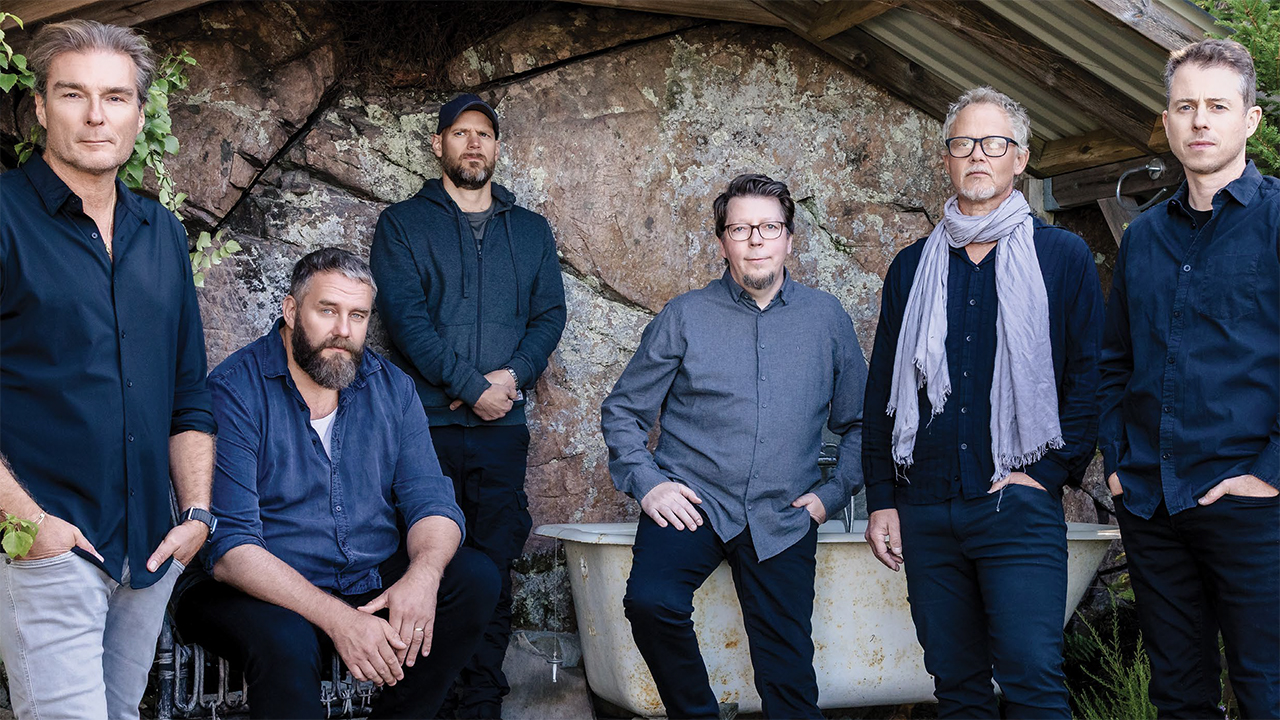“When Piotr died I thought maybe it’s time to say: ‘This is the end of Riverside'." How Riverside got back on track with Wasteland
The death of Riverside’s guitarist Piotr Grudzin´ski could have ended the band. Instead, they returned with a new sound on an album about grief, hope and survival.
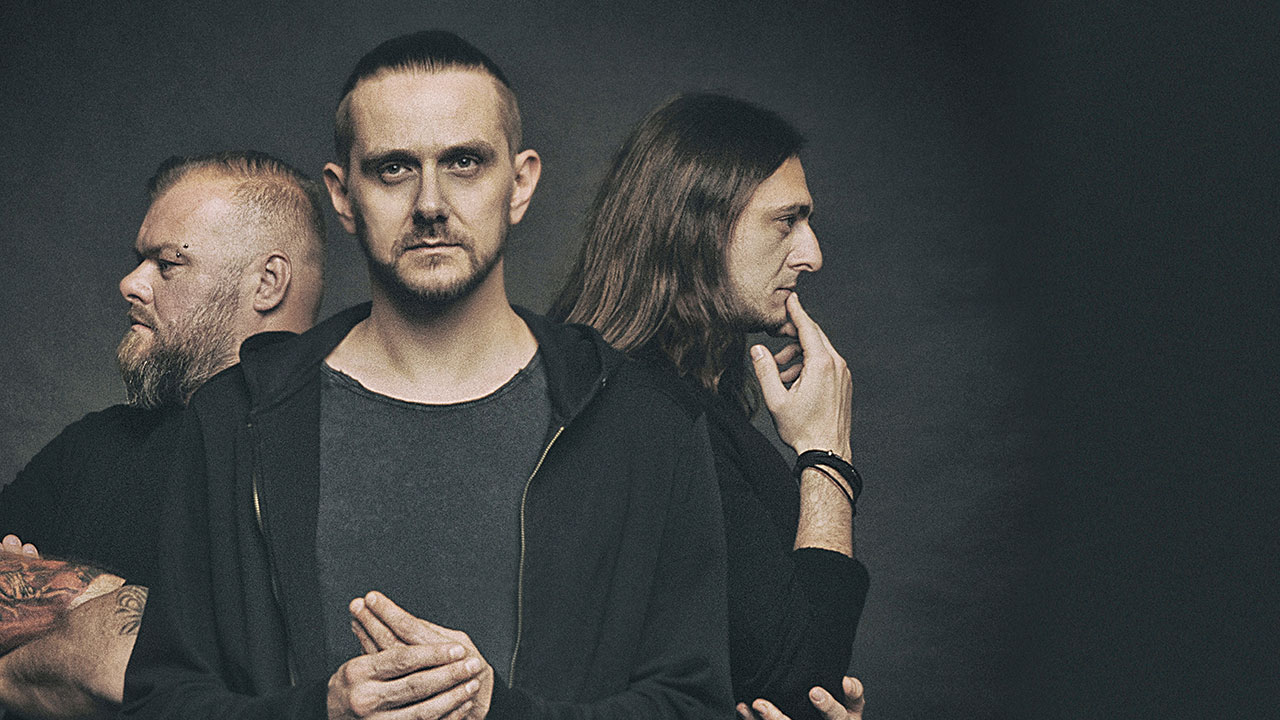
Select the newsletters you’d like to receive. Then, add your email to sign up.
You are now subscribed
Your newsletter sign-up was successful
Want to add more newsletters?

Every Friday
Louder
Louder’s weekly newsletter is jam-packed with the team’s personal highlights from the last seven days, including features, breaking news, reviews and tons of juicy exclusives from the world of alternative music.

Every Friday
Classic Rock
The Classic Rock newsletter is an essential read for the discerning rock fan. Every week we bring you the news, reviews and the very best features and interviews from our extensive archive. Written by rock fans for rock fans.

Every Friday
Metal Hammer
For the last four decades Metal Hammer has been the world’s greatest metal magazine. Created by metalheads for metalheads, ‘Hammer takes you behind the scenes, closer to the action, and nearer to the bands that you love the most.

Every Friday
Prog
The Prog newsletter brings you the very best of Prog Magazine and our website, every Friday. We'll deliver you the very latest news from the Prog universe, informative features and archive material from Prog’s impressive vault.
When Riverside released their seventh album in 2018, mainman Mariusz Duda told Prog why they kept going, and how Wasteland marks the start of an exciting new chapter.
Prog last caught up with Polish proggers Riverside almost two years ago, during one of the most tumultuous periods of their career. The band were reeling from the death of their guitarist Piotr Grudzin´ski nine months before, a complete shock that left them contemplating their future.
Back then, they had just completed Eye Of The Soundscape, a collection of ambient, instrumental deep cuts that had allowed them to play around with electronic influences. It was a move in keeping with their progressive mindset and willingness to push the boundaries of their own sound. Yet it was also the first album they had recorded without Grudzin´ski, and as such, it also felt like a diversion rather than a new direction; a plaster placed over an open wound while the band battled their pain and figured out what the hell they were going to do next.
Now, vocalist, bassist, main composer and bandleader Mariusz Duda is speaking to us from a very different place. After Grudzin´ski’s death he immediately threw himself into work. Holing up in the Warsaw studio he calls a second home, just a seven-minute walk from his house, he recorded three albums on the trot. Two were with his side project Lunatic Soul – 2017’s Fractured and 2018’s Under The Fragmented Sky – and the third and most recent was Riverside’s seventh studio record, Wasteland.
It’s the latter album we’re here to talk about today, as well as the band’s decision to soldier on as a trio and what it was like to record music without Grudzin´ski for the first time.
“I had a chance to get used to it because I was in the studio all the time,” says Duda. “Wasteland was like the third album in a row during one year for me. I was doing this constantly. The harder thing was when we had to finish Eye Of The Soundscape – that was really hard. Piotr’s death was the end of the world for us. We’re a different band now but we’re still Riverside. We lost one voice but the main core stayed the same. We miss him but we also need to move on.”
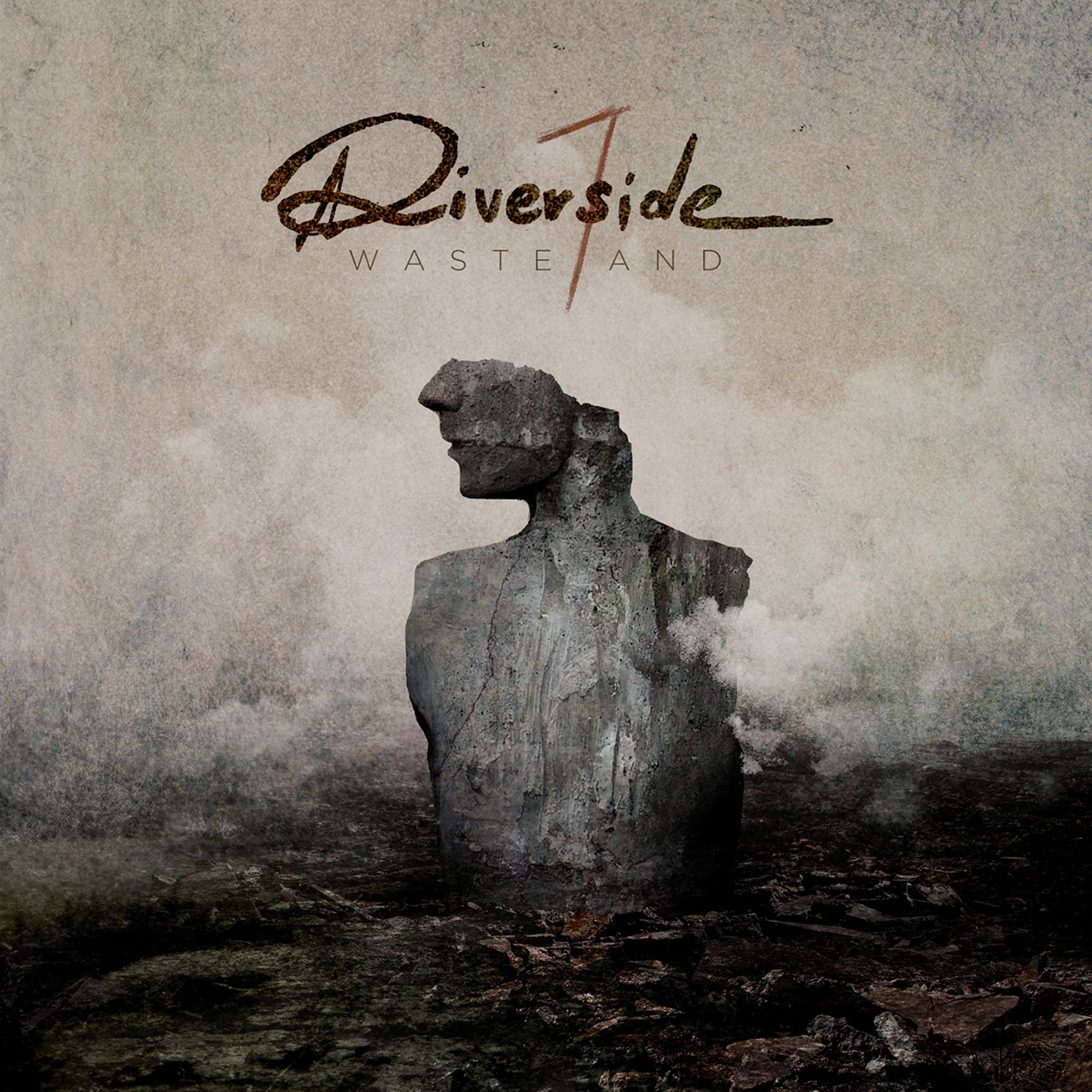
Did they consider breaking up the band at any point?
Sign up below to get the latest from Prog, plus exclusive special offers, direct to your inbox!
“Yes,” Duda replies. “When Piotr died I thought maybe it’s time to say: ‘This is the end of Riverside. I should focus on Lunatic Soul and albums under my own name.’ But after a few months I realised I’d put so much energy and my private life into this. I think we still have lots of ideas and music to play.
“It was hard when we tweeted a picture of the three of us and someone put the icon with the tear. It’s not really helpful when someone always tries to remind us: ‘I’m so sorry for what happened.’ We know what happened and that was the end of the world. We don’t want to talk about the fact we lost our friend – we just want to talk about how to survive and how to move on. Wasteland is a new chapter for us.”
Duda identifies himself as a storyteller whose lyrics create “thematical” rather than concept albums. For instance, on 2013’s Shrine Of New Generation Slaves he explored modern slavery, while 2015’s Love, Fear And The Time Machine focused on “love and memories”. On Wasteland, he’s channelled the earth-shattering pain that engulfed him and his bandmates after Grudzin´ski’s death, as well as drawing inspiration from Cormac McCarthy’s 2006 novel The Road and the Fallout videogame series, to create lyrical imagery of a decayed and crumbling post‑apocalyptic world.
It represents a band rebuilding their lives from ground zero. The first line of album opener The Day After contemplates fate and the fragility of life: ‘What if it’s not meant to be? What if someone has made a mistake?’
“I usually try to write stories that are connected with my life but Wasteland is a reflection about where we are right now as a band,” says Duda. “That’s what’s going on with all these post-apocalyptic stories – I imagined people who survived after the end of the world and they’re just trying to move on in spite of the circumstances. But reading the lyrics and listening to the music, I think people will hear other things and read between the lines.
“For some people it will be the album about the death of our guitar player. For other people it will be the album about refugees, war and politics. For others it will be the story about the band who tried to survive.”
Riverside’s last two releases – Eye Of The Soundscape and Love, Fear And The Time Machine – were both ambient wanderings through the lighter, more watercolour textures that exist in the Riverside palette. Unsurprisingly, following the most challenging months of their career, a dose of heaviness has found its way back into the band’s music. Although Duda is keen to spotlight each tumbling facet of the band’s sound on Wasteland, more metallic leanings can be heard in the crunchy riffs of Acid Rain and Vale Of Tears that are reminiscent of the group’s early work.
“For me, Riverside is kind of divided: the old Riverside and the new Riverside,” Duda explains. “The old Riverside is connected with our first four albums: full of great ideas, but the production and sound were, let’s be honest, too underground for me. With Shrine Of New Generation Slaves, I think we started to sound better. With this one I just wanted to keep this production as good as Love, Fear And The Time Machine and Shrine Of New Generation Slaves, but also add something from the previous decade, a touch of this underground sound.
“I think what’s really special now is the guitar,” he continues. “I connected the sound of distorted bass with the sound of distorted guitar and thanks to that, we achieved something rusty and also really original. Something between metal, stoner rock and prog rock.
“If someone wanted to know my main inspiration, I would say Peter Gabriel, because he always had a very nice connection between the rhythm and the melodies. For me it’s always connected with emotions and hearts first and foremost, and this is much more progressive than bands who sound similar to Pink Floyd, for instance. In Wasteland we’ve recorded a really progressive album, but in the wider sense. When someone asks what’s prog for me, I always say it’s pushing boundaries, and we pushed a lot of boundaries this time.”
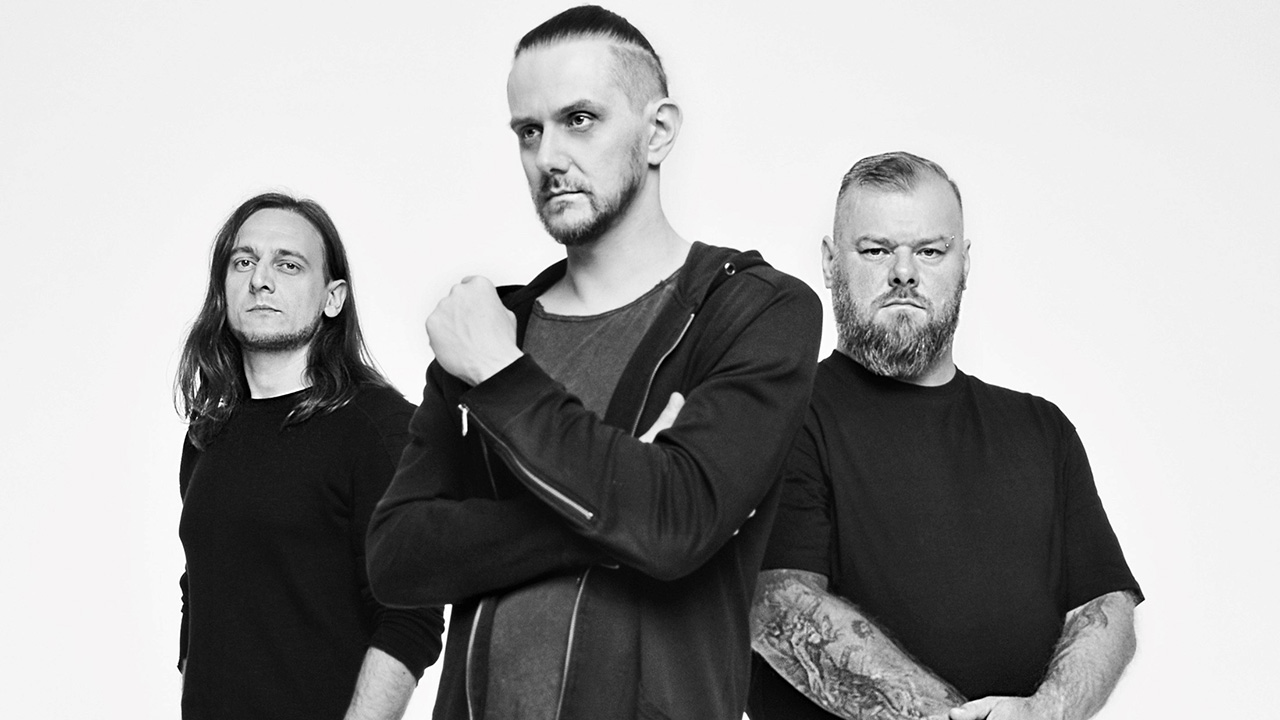
Although Riverside brought in their close friend Maciej Meller to play guitar during their recent live shows, in the studio, Duda and his bandmates – keyboardist Michał Łapaj and drummer Piotr Kozieradzki – retreated back to being a trio, with Duda taking over the bulk of guitar responsibilities himself. It’s an arrangement that’s unlikely to change any time soon, with the band reluctant to replace Grudzin´ski on a permanent basis.
“For now it works,” says Duda firmly. “When Genesis became a trio, Chester Thompson and Daryl Stuermer joined the band and that was the live version of Genesis. It was the same situation with John Wesley and Porcupine Tree. For now we don’t think we need to hire a guitar player if the music is good and the emotions are well balanced. And it’s not because I want to be the leader and play on everything. I’d love to bring Riverside back as a quartet but it takes time and it will happen naturally.”
The tracks on Wasteland are interlinked by poignancy, sadness and an air of finality. However, among that darkness, rich, bright solos spiral defiantly upwards, coupled with a sense of hope that permeates bluer skies. In the lead-up to the album’s release, Duda teased that it would be an “epic, multidimensional, poetic and very deep album. Perhaps of the once‑in-a-lifetime kind.”
Indeed, there’s a real sense that the band have turned a corner, emerging from a long, black tunnel into the light. Ultimately, this represents a line in the sand for them. It’s the album they needed to make in order to move on, and one that gazes wistfully back while looking resolutely forward. How does it feel starting a new chapter? Overwhelming? Nerve-wracking?
“No, it’s good,” says Duda. “This is the end of mourning, the end of sad things. We’ve started a new life and we feel lots of strength within and support from our fans. We feel excited about the new chapter.
“I know people will still look at us like, ‘Oh my God, Riverside ended with the death of Piotr – why would they want to continue under the Riverside name?’ Well, the main core has stayed the same, we are Riverside and we haven’t said our last word yet. With Wasteland and our future albums, we’ll prove that. I’m excited for the things that are waiting for us.”
Danniii Leivers writes for Classic Rock, Metal Hammer, Prog, The Guardian, NME, Alternative Press, Rock Sound, The Line Of Best Fit and more. She loves the 90s, and is happy where the sea is bluest.
